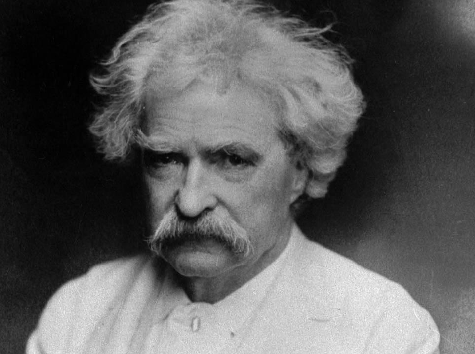A Native American tribe blocked the use of iconic author Samuel Clemens (aka Mark Twain) as the name for a Lake Tahoe cove for the second time in three years.
According to Fox News, the Washoe Tribe of California and Nevada complained that the widely-read American writer held racist views of Native Americans.
“Samuel Clemens had racist views on the native people of this country and has captured those views in his literature,” asserted Darrel Cruz, head of the tribe’s cultural resource department. Mark Twain has been read for generations and is considered one of the great literary “Realists.”
He wrote the classic “The Adventures of Huckleberry Finn” detailing the American south in the mid 19th century, and American author Ernest Hemingway referred to the novel as the source of “all modern American literature.” But Cruz does not deem Clemens worthy of the geographic tribute.
Joseph Csicsila, an English professor at Eastern Michigan University, admitted that Twain indeed had negative views of Native Americans, yet they were shaped by extenuating circumstances. “Twain’s harsh depictions of Native Americans was in large part a response to the twin experiences of reading the ‘false’ accounts of Indian literature and his firsthand disillusioning experiences with some Native people in the West.” Moreover, Csicsila claims that “Twain gradually became sympathetic toward and even admiring of Native Americans in the final decades of his life.”
Fox News reported that James Hulse, history professor emeritus at the University of Nevada-Reno, claims that the cove should be named after Twain because of his love for the beauty of Lake Tahoe. Hulse points out that Twain was a critic, and that the Native Americans were not the only ones that he lambasted in his day: “In his early days, (Twain’s) ironic-comic mode was insulting to everyone, including governors, legislators, mine bosses and journalistic colleagues.” He added that Twain “learned and overcame his prejudices far better than most of his contemporaries and successors.”
Moreover, Thomas Quirk, a leading Twain scholar, claims that the author eventually overcame his racism against blacks. “When it comes to African Americans, he was ahead of his time substantially,” he said.
Mark Twain once explained that, like many who grew up in the South, “In my schoolboy days I had no aversion to slavery; I was not aware that there was anything wrong about it. No one arraigned it in my hearing; the local papers said nothing against it; the local pulpit taught us that God approved it.” But, ultimately, Twain’s books exposed the volatility of racism in America and brought to the forefront the diabolical system that threatened the unity of the nation.

COMMENTS
Please let us know if you're having issues with commenting.